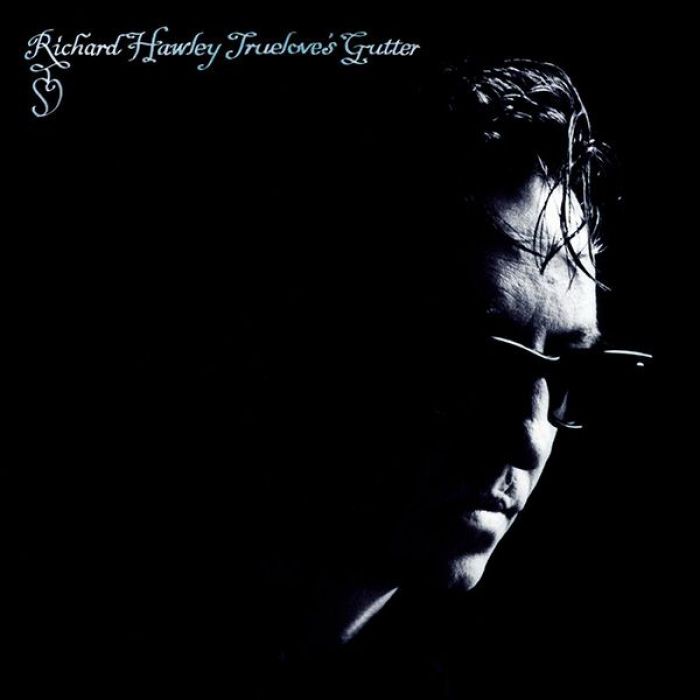Truelove’s Gutter by Richard Hawley (Review)

As has been said many times, our’s is a cynical time — one in which something that has even the slightest whiff of sentiment is instantly eviscerated with as much snark and vitriol as possible. But Richard Hawley doesn’t really seem to care.
On Truelove’s Gutter, his sixth solo album, he has the guts to lyrics like “Never say goodbye/You’re the apple of my eye” and “I just want to make you smile/And maybe stay with you awhile.” He sings of domestic pleasures: watching the sun rise over washing lines, lamenting the old hometown, running into cinemas to avoid the rain, and finding solace in watching his lover sew.
That’s right: sew.
A lesser singer/songwriter would probably be washed away by the inevitable wave of cynicism and left bruised and battered on the rocks of this callous age. But Hawley soldiers on, and in the process, produces a simply magnificent album full of gorgeously arranged and deeply moving songs — and all the while remaining unashamedly sentimental.
And I think there are two primary reasons for this. The first is Hawley’s voice. In his review, Josh Hurst describes it as mix of Johnny Cash and Bing Crosby, which seems preposterous on paper but is pretty accurate (indeed, it’s hard not to imagine the Man in Black’s ghost making its way through some of Hawley’s songs, particularly “Ashes on the Fire”). Hawley’s rich, gravelly baritone has enough weight and grit to it to lend even the most cloying phrase gravitas and dignity. Simply put: when he sings, you believe him.
At the same time, his voice is like Scott Walker’s: smooth and silky enough to make these songs, some of which get pretty murky at times, always easy to listen to (which is not the same thing as easy listening). It also conjures up hipster-friendly images of Hawley hunched over on a stool in some dark, classy night lounge, guitar in hand, cigarette dangling from his lips, hair slicked back, and sunglasses in place (though Hawley is pretty far from “hipster,” kids).
The second reason for Truelove’s Gutter’s success is its musical arrangements. Hawley is joined by a number of collaborators, including an eleven-member string section — and together, this group waves together a rather stunning array of instrumentation, ranging from organs, lap steel, and a battery of guitars to more esoteric instruments like alpine concert zither, ondes martenot, and cristal baschet.
But everything comes together in a way that is richly textured and delightfully subtle, and remains that way from start to finish — impressive considering the average length of the album’s songs is nearly 7 minutes. There are very few outbursts on Truelove’s Gutter, the notable exceptions being the cinematic swell of strings and piano on “Open Up Your Door” and “Soldier On“ ‘s slow-burn climax. Rather, the vast majority of the album lingers in the background, ephemeral and alluring, drawing you in deeper and making you all the more receptive to Hawley’s sentimental odes.
But don’t think that Hawley is merely some ultra-smooth cat in a lounge act. Sadness and loss lace and color Hawley’s sentiment (for example, “Remorse Code” is a surprisingly touching song concerning the ravages of cocaine), and appropriately enough, some of the sounds that Hawley and Co. bring forth are quite haunting. (It’s not at all difficult to imagine Portishead falling all over themselves upon hearing the opening moments of “Soldier On.”)
Suffice to say, Truelove’s Gutter packs an emotional wallop — provided you’re willing to absorb all of Hawley’s impassioned longing and pensiveness. As for me, I’ve been listening to this album non-stop for nearly a week now, and it still moves me. Hawley ventures through some dark places in his songs but the results remain glorious, even transcendent.
If it were possible, I’d add “Open Up Your Door” to the mix that my wife and I played at our wedding, and every time I listen to “For Your Lover Give Some Time” and Hawley’s desire to pay, and have paid, closer attention to the simple joys available at home, I find myself wanting to be a better husband.
If there’s higher praise that I can give an album, I can’t think of it.